The U.S. Department of Defense will open its networks to smartphones and tablets from Apple and Android device manufacturers beginning in February of 2014, as one of the nation's largest employers expands beyond BlackBerry and into a more "platform agnostic" IT policy.
The Department of Defense on Tuesday released a new plan for speeding adoption of mobile devices — both secure classified and unclassified — as well as applications. The goal for the Department is to establish wireless voice, video, and data capabilities by October of 2013, with wider device availability beginning next year.
One component of the DoD's plan will be to move away from its current BlackBerry standard and toward a more "platform agnostic" policy, integrating devices running Apple's iOS as well as Google's Android operating system. A DoD representative told AppleInsider that this does not mean a full abandonment of BlackBerry's platform, as was the case with other large organizations such as Home Depot.
"It won't be a shotgun approach, where everyone gets the same apps and devices," said Lt. Col. Damien Pickart, speaking with AppleInsider. "The key takeaway is that it's a multi-vendor solution. We will have a DoD-wide device management system and a DoD-wide app storefront."
Currently, the Department has just over 600,000 mobile devices in use in both standard operations and pilot programs. That includes roughly 470,000 BlackBerry devices, about 41,000 iOS devices, and around 80,000 devices running Android.
Pickart pointed out in the interview that this is not a move to implement a bring-your-own-device (BYOD) standard at the Department — at least not for now.
"It's not BYOD; it is the department migrating to a multi-vendor environment that is going to include more than BlackBerry currently," he explained. "BYOD is a long-term objective, but we're just not there yet. The technology is there, but things like security, we're not quite there yet."
BlackBerry's struggling platform will remain a part of the Pentagon's mobile device strategy. The Department is evaluating the mobile maker's recently released BlackBerry 10 platform with an eye toward integrating it into operations. BlackBerry's longtime focus on mobile security is a major reason behind the DoD's continued interest in the platform. Pickart said, though, that Android and iOS have made strides in that area as well.
"Other systems are maturing in their capability to provide greater security with their systems. The level of security with BlackBerry has been above most, but others are moving toward that and are achieving that."
The new policy will also come with a push to speed up the rate at which the DoD is able to acquire new technologies. Pickart spoke of a "constant tech refresh spiral," in which the department streamlines its technology buying in order to more readily adopt new new devices and technologies, thereby keeping pace with organizations in the civilian sector.
The new policy, he says, will allow the numerous components within the department to tailor their technology orders to their specific purposes.
"I think the best way to describe why we're moving to more than just one is that one size doesn't fit all," Pickart explained. "Each organization is going to have different needs. By having a family of mobile devices from which we can choose, we'll be better able to tailor devices and offerings to organizations' needs."
 Kevin Bostic
Kevin Bostic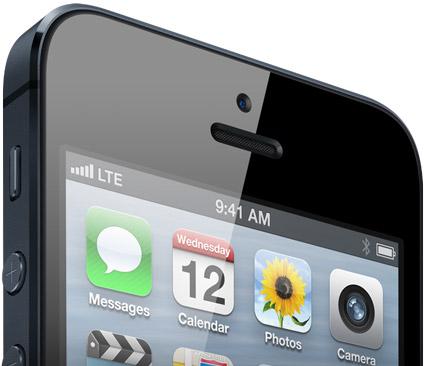


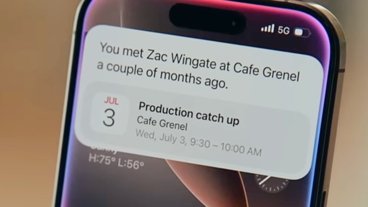

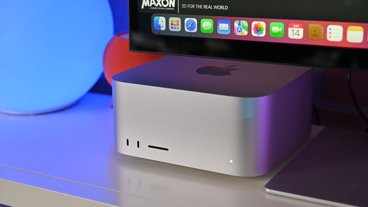


-m.jpg)






 Charles Martin
Charles Martin

 Amber Neely
Amber Neely
 Christine McKee
Christine McKee
 Malcolm Owen
Malcolm Owen

 William Gallagher
William Gallagher

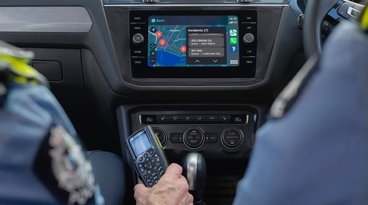



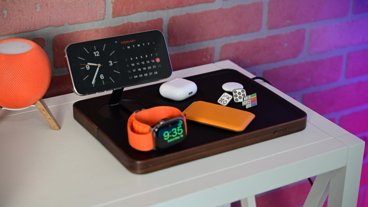


13 Comments
I'll feel a lot safer when the ban any form of Windows.
Finally! Pentagon employees can join the post-2007 world.
DoD can try all they want to to single-handedly resurrect RIMM/Blackberry/or whatever they call themselves today but it won't help. If you see Blackberry's being purchased in bulk, then you know DoD/Pentagon is still hanging onto them. It's the "secure classified" part I have a problem with and a feature iOS and Android devices might not be able to compete in. This means encrypted voice communications from one end to the other, currently using Blackberry's servers to manage the encryption. Of course, you can never guarantee who is on the other end of the line (same with computers) or around the corner so having classified discussions from one country to the next will have guaranteed problems. I hope Apple can figure out a way to provide encrypted communications with a failsafe method for guaranteeing who is connected on the other end as well as in-between (NSA/CIA/FBI/NCIS :-) can't have a backdoor key or any way of breaking into these communications or they are worthless.
What is it, exactly, that BB makes it so much more secure than the competition? Certainly it cannot be their email config, leaving the country and all that. Is their communication encrypted at a level that competitors can't match?
What is it, exactly, that BB makes it so much more secure than the competition? Certainly it cannot be their email config, leaving the country and all that. Is their communication encrypted at a level that competitors can't match?
Not exactly... much more too it.
http://www.trendmicro.com/cloud-content/us/pdfs/business/reports/rpt_enterprise_readiness_consumerization_mobile_platforms.pdf